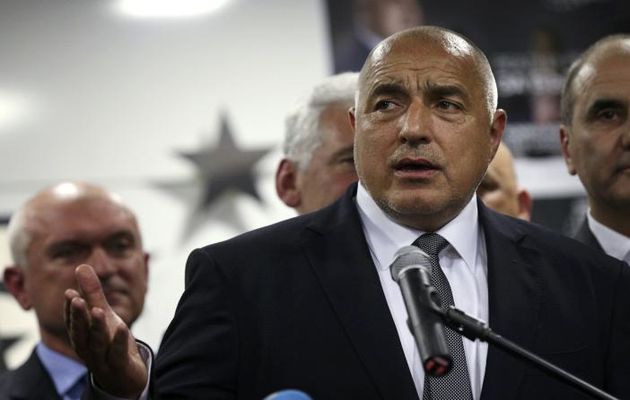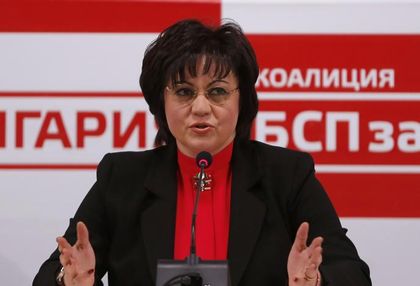GERB party had 32% of the votes, while the Socialist Party came second with 27%.
 Bulgarian pro-EU, centre-right leader, Boyko Borisov./ Reuters
Bulgarian pro-EU, centre-right leader, Boyko Borisov./ Reuters
According to the Central Election Commission, with 100% of votes counted, Bulgarian pro-EU, centre-right leader, Boyko Borisov, took the lead in Bulgaria’s parliamentary election on Sunday March 26.
Borisov, who was Prime Minister from 2009 to 2013 and 2014 to last year, resigned in November after GERB's candidate lost the presidential election. The parliament was dissolved in January, and the President appointed a caretaker government that will stay until a new government is formed.
Borisov's Citizens for European Development of Bulgaria (GERB) party had 32.6% of the votes.
FOUR OTHER PARTIES WON SITS
The Bulgarian Socialist Party (BSP) came second with 27.2%, ahead of the nationalist United Patriots that had 9.1%.
Additionally, 8.9% of Bulgarians voted for the Movement for Rights and Freedoms (MRF), a party traditionally associated with a strong support base among Bulgarians of Turkish ethnicity; and a new party, Volia, launched by businessman Veselin Mareshki had 4.1% of the vote.
All other parties got less than the 4% that is necessary to have a seat in the 240-seat parliament, including the Reformist Bloc and DOST, a pro-Turkey party supported by Ankara.
For a government to be elected, it would have to have the votes of just more than half the total number of MPs.
 Socialist party leader, Kornelia Ninova, conceded defeat . / Reuters
Socialist party leader, Kornelia Ninova, conceded defeat . / Reuters
COALITION GOVERNMENT NEEDED
"I hope we can ensure the rapid formation of a government that responds to the wishes of the people and to the grave international situation", Borisov said on Sunday.
The former Prime Minister pointed out that the results "confirmed categorically that GERB should be the leading ruling party", adding that he would make "utmost efforts with potential coalition partners to form a government quickly.”
SOCIALISTS: “IF THEY FAIL, WE WILL TRY TO FORM GOVERNMENT”
Socialist party leader, Kornelia Ninova, conceded defeat late on Sunday, but she told reporters that “if they fail to form a government and we receive a mandate, we will try to form a Bulgarian government, to ensure stability in the country.”
Both leaders insisted on the need for political stability, with Bulgaria set to take the rotating EU presidency on 1 January 2018.

Las opiniones vertidas por nuestros colaboradores se realizan a nivel personal, pudiendo coincidir o no con la postura de la dirección de Protestante Digital.
Si quieres comentar o